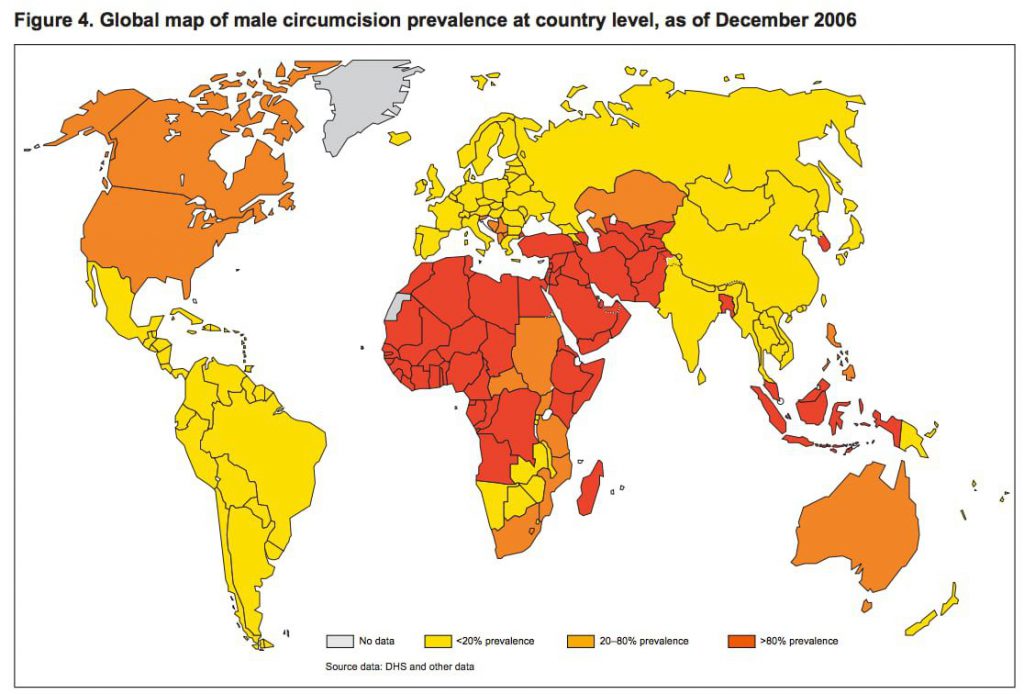Circumcision for babies is the process of removing the foreskin preperidium. But the question is why? The reason is that in the adult, the foreskin is removed for cleanliness, however in the child, it needs to be removed because of the sensitivity and danger of infection. In fact, many physicians recommend that newborn men have a circumcision because of the reduced risk of disease and the diminished likelihood of acquiring diseases that may be contracted by an unaltered foreskin in adult males. Let us have a look at the advantages and disadvantages of having a newborn circumcised.
Circumcision For Babies – Can It Be Painless?
According to American Academy of Pediatrics, the reduced risk of infection is just one reason for the choice to have a newborn male circumcision. It’s estimated that approximately nine out of every ten cases of urinary tract disease in children are caused by a bacteria known as urethrostomycosis. This bacteria is known to produce short chain fatty acids (SCFA), that are able to penetrate the inner lining of the male’s urethra, causing severe and at times life-threatening ailments, such as arthritis and phimosis. With the absence of the protective liner, the penis gets more vulnerable to germs especially if the male did not have a foreskin before.
Circumcision For Babies – Can It Be Painless?
Experts believe that the benefits of adult circumcision outweigh the downsides. To begin with, the wound from the process is smaller than the one that the intact penis leaves after its elimination. This is a significant advantage as it prevents scarring and deformity. Moreover, there is no need to remove all the skin, unlike with an adult circumcision. Also, the pain is minimal and temporary, compared to the pain incurred through an intact penis.
Circumcision For Babies – Can It Be Painless?
However, there are a number of disadvantages too. First, a small quantity of the penis is exposed after the process. Some specialists indicate that the amount of exposure may be more than three times of that of an entire manhood. In addition, most of the preputaneous tissues that are removed are not replaced, which makes the guy at risk of contracting a disease and getting his genitalia reabsorbed into the body.
Circumcision For Babies – Can It Be Painless?
Circumcision can also result in increased risk of acquiring human papillomavirus (HPV), the virus that causes cervical cancer. According to some experts, around 90 percent of those men who were circumcised were diagnosed with HPV infection in their lifetime. Furthermore, people who had been re-circulated after their initial surgical procedure had greater risk of acquiring cervical cancer. However, researchers believe that this is a result of poor follow up following the procedure.
Experts advise against the practice of adult circumcision, chiefly because it triggers a number of unwanted health conditions. First, there’s the lack of awareness on the part of the infant or baby who undergo such procedure. Most adults don’t know the details of how this procedure works. Most infants do not even bother to gain an erection when they are circumcised. Furthermore, most guys who are circumcised have their foreskin restored after the procedure.
Moreover, adult men who opt for a virtually painless circumcision process do not have the coverage that they need. Their penis is going to probably be exposed to very tiny quantities of blood. Typically, this can result in skin infections. Moreover, mature men who've been subjected to a virtually painless procedure are more likely to engage in risky sexual behaviors, which might place both themselves and their spouses at risk.
In addition, adult men often don’t think about the long-term consequences that they’ll face because of having their baby trimming. Such men may have to take care of psychological injury as a result of their baby son being changed. Some parents have been known to draw from society due to their inability to adjust to the death of a baby. More so, you will find the issues of a restored foreskin that may cause itching and scratching, which might lead to additional infections.